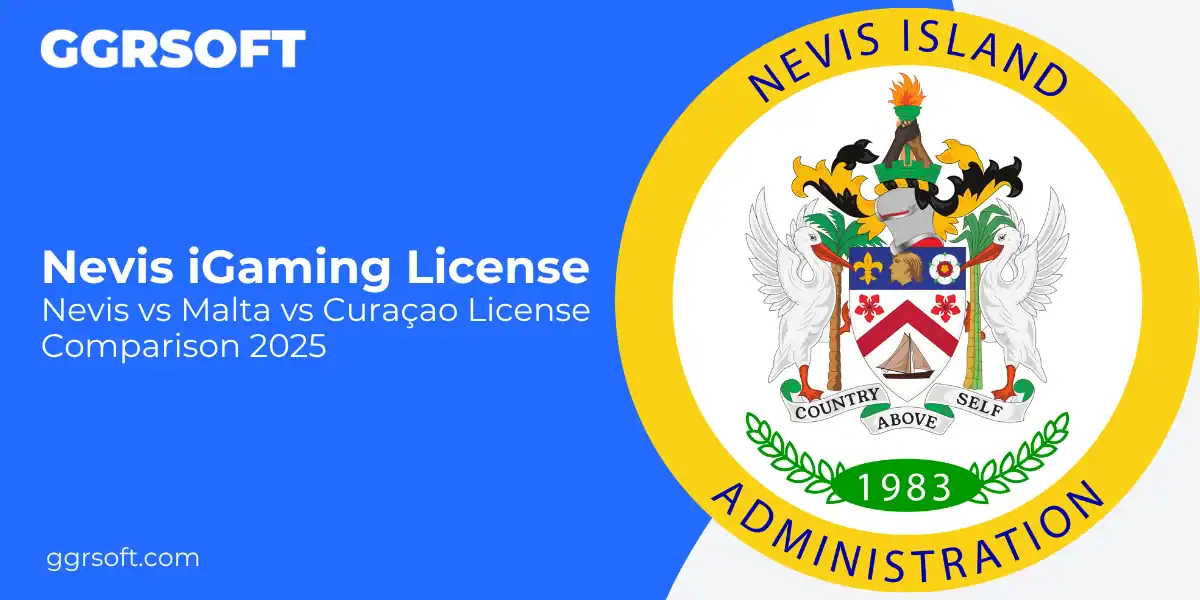
Japan online casino market regulation 2025 guide: licensing process, legal framework analysis, and strategies for successful market entry.
MEET US AT SIGMA EUROPE

The Anjouan iGaming license is a popular choice for online gambling operators due to its affordability, fast processing, and flexible regulations. If you’re planning to launch an online casino, sportsbook, or poker platform, this guide will explain how to get an Anjouan iGaming license in 2025, including the latest updates, requirements, costs, and step-by-step application process.
The Anjouan licensing authority has introduced several changes this year:
✓Evolution Group Now Accepts Anjouan Licenses – A major shift, allowing license holders to integrate Evolution’s live casino games.
✓ Re-Registration for Existing Operators – Businesses with licenses from other jurisdictions can now transfer to Anjouan more easily.
✓ Stricter AML & KYC Checks – Enhanced fraud prevention measures to improve credibility.
✓ Over 1,000 Licenses Issued – Growing trust among operators worldwide.
Anjouan, part of the Comoros Islands, offers a cost-effective licensing solution for iGaming businesses. Here’s why many operators prefer it:
✅ Industry-leading affordability – Save 60-80% compared to European licenses.
✅ Quick Approval – Processing takes 4-6 weeks, faster than stricter jurisdictions.
✅ No Gaming Taxes – Operators keep more revenue compared to EU-regulated markets.
✅ B2B & B2C Options – Suitable for both software providers and casino operators.
✅ Crypto-Friendly – Allows cryptocurrency transactions, appealing to modern operators.
However, some drawbacks include limited recognition in certain markets and stricter banking options due to its offshore status.
| Feature | Anjouan | Curacao | Malta | Nevis |
|---|---|---|---|---|
| Total Cost | €17-27K | €24-47K | €50K+ | €28-40K |
| Processing Time | 30 days | 6-10 wks | 3-6 mo | 8-10 wks |
| Taxation | 0% | 0-2% | 5-35% | 0% |
| Crypto Integration | ✅ Full | ✅ Yes | ❌ No | ✅ Yes |
| Market Reach | Global* | Global* | EU+ | Global* |
| Reputation | Rising | Standard | Elite | Emerging |
*Some country restrictions apply
Strategic Advantage: Anjouan delivers superior value with its unique combination of speed, cost savings, and cryptocurrency readiness.
Anjouan offers two main license types:
Gather all necessary company documents, including incorporation certificates, financial statements, and compliance reports.
To apply for an Anjouan iGaming license in 2025, operators must meet a few core financial and technical criteria. The process remains one of the most cost-effective in the industry.
| Item | Description | Cost |
|---|---|---|
| Anjouan Gaming License Fee | One-time initial license fee | €17,000 |
| Licensing Management Platform | Required service, billed €69/month annually in advance | €828 |
| Company Incorporation | Depending on jurisdiction (e.g., Costa Rica, Belize, etc.) | €1,100 - €4,000 |
| Total Estimated Starting Cost: €18,928 - €21,828* | ||
*These costs reflect the base setup for B2C or B2B iGaming operations in Anjouan as of 2025. Additional services like compliance consulting, banking setup, or technical audits may apply depending on the provider.
Apply through an authorized agent or directly via the Anjouan licensing portal. Using a legal expert speeds up the process.
✅ Cost-Effective: Anjouan iGaming licenses are generally more affordable compared to those issued by more established jurisdictions. This lower cost includes both the initial licensing fee and the ongoing regulatory fees.
✅ Efficient Licensing Process: The licensing process in Anjouan is relatively quick and straightforward, making it an attractive option for operators looking to enter the market promptly.
✅ Favorable Tax Environment: Anjouan offers a favorable tax regime for gaming operators, which can include low or even zero taxation on gaming revenues, depending on specific arrangements.
✅ Flexibility: The regulatory framework in Anjouan is known for being less restrictive, providing operators with greater flexibility in terms of business operations and game offerings.
✅ Accessibility: Anjouan licenses are accessible to a wide range of operators, including startups and smaller enterprises that might find it challenging to meet the more stringent requirements of other jurisdictions.
❌ Market Restrictions: Some countries and regions may not recognize the Anjouan gaming license, limiting the ability of operators to offer their services in certain markets. This can restrict the operator’s potential customer base.
❌ Reputation Risk: The relatively lenient regulatory environment can attract operators who may engage in unethical practices. This poses a risk to the overall reputation of the jurisdiction and its license holders.
❌ Compliance Challenges: Operators licensed in Anjouan may face challenges when seeking to comply with the regulatory requirements of other jurisdictions, particularly if they aim to expand their operations globally.
🔹 Work with a Licensing Expert – Avoid delays with professional assistance.
🔹 Ensure AML Compliance – Strong fraud prevention measures are mandatory.
🔹 Choose Reliable Software – Only certified gaming platforms are approved.
🔹 Check Target Market Restrictions – Some countries block Anjouan-licensed sites.
✅ Our 4-step process takes just 1 month:
GGRSOFT clients get priority processing.
💰 2025 Pricing:
*Save 60%+ compared to Malta/Curacao licenses
🆚 Anjouan wins in 2025:
📅 Initial term: 1 year
🔄 Renewals: Simplified process (3-year discounts available)
🚫 No - 100% remote operations allowed (2025 policy update)
Getting an Anjouan iGaming license in 2025 remains a smart choice for startups and cost-conscious operators. While it has some limitations, its low cost, quick processing, and tax benefits make it a strong alternative to stricter jurisdictions.
By following this guide, you can navigate the application smoothly and launch your iGaming business successfully.
Consult GGRSOFT specialists to ensure compliance and faster approval!


Japan online casino market regulation 2025 guide: licensing process, legal framework analysis, and strategies for successful market entry.

Nevis gaming license regulations are active, offering global operators a transparent and competitive regulatory environment.

Nevis igaming license 2025: Why operators choose it over Malta/Curaçao. 0% tax, crypto-friendly & fastest Caribbean approval.
Let’s Connect
